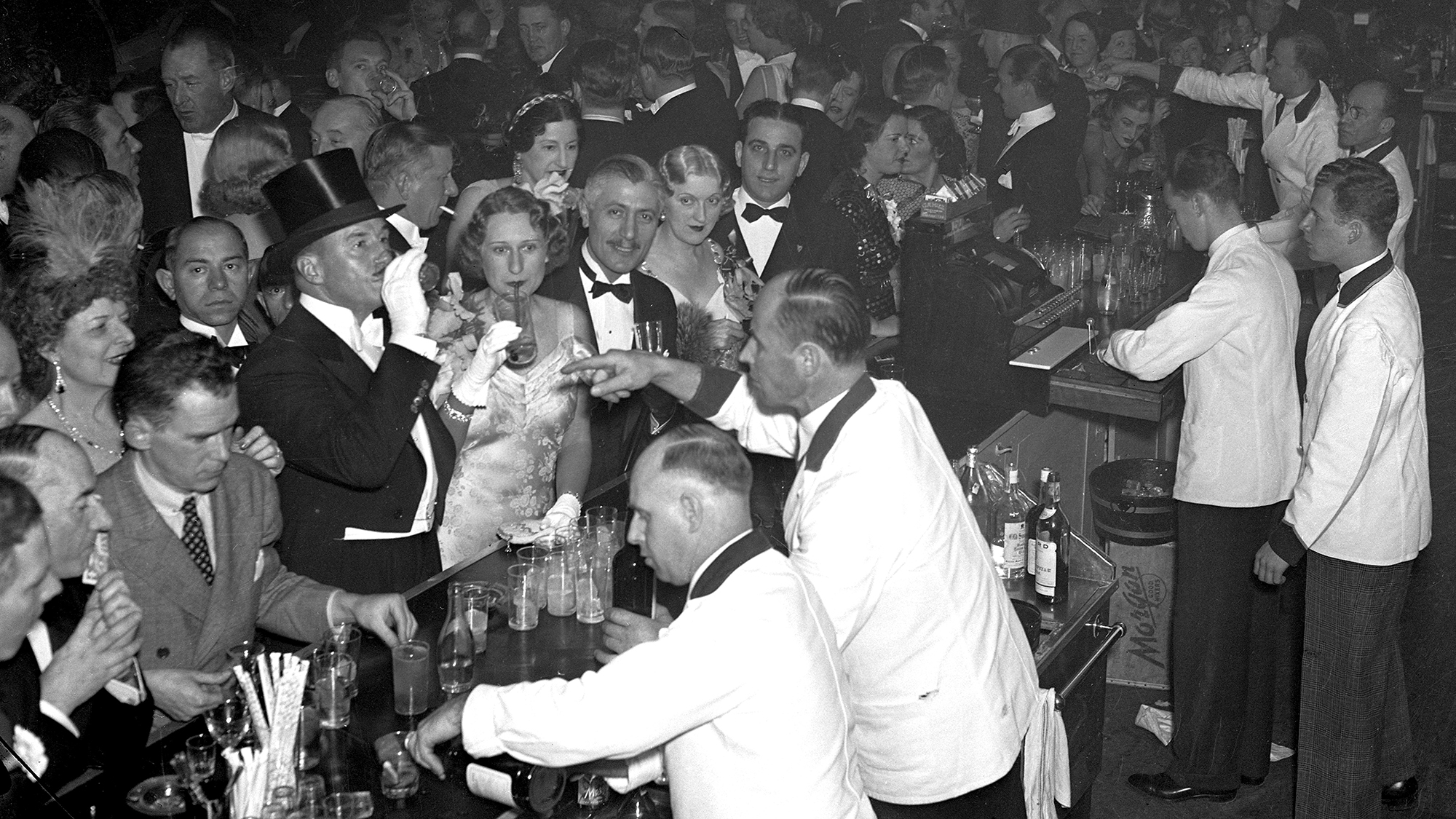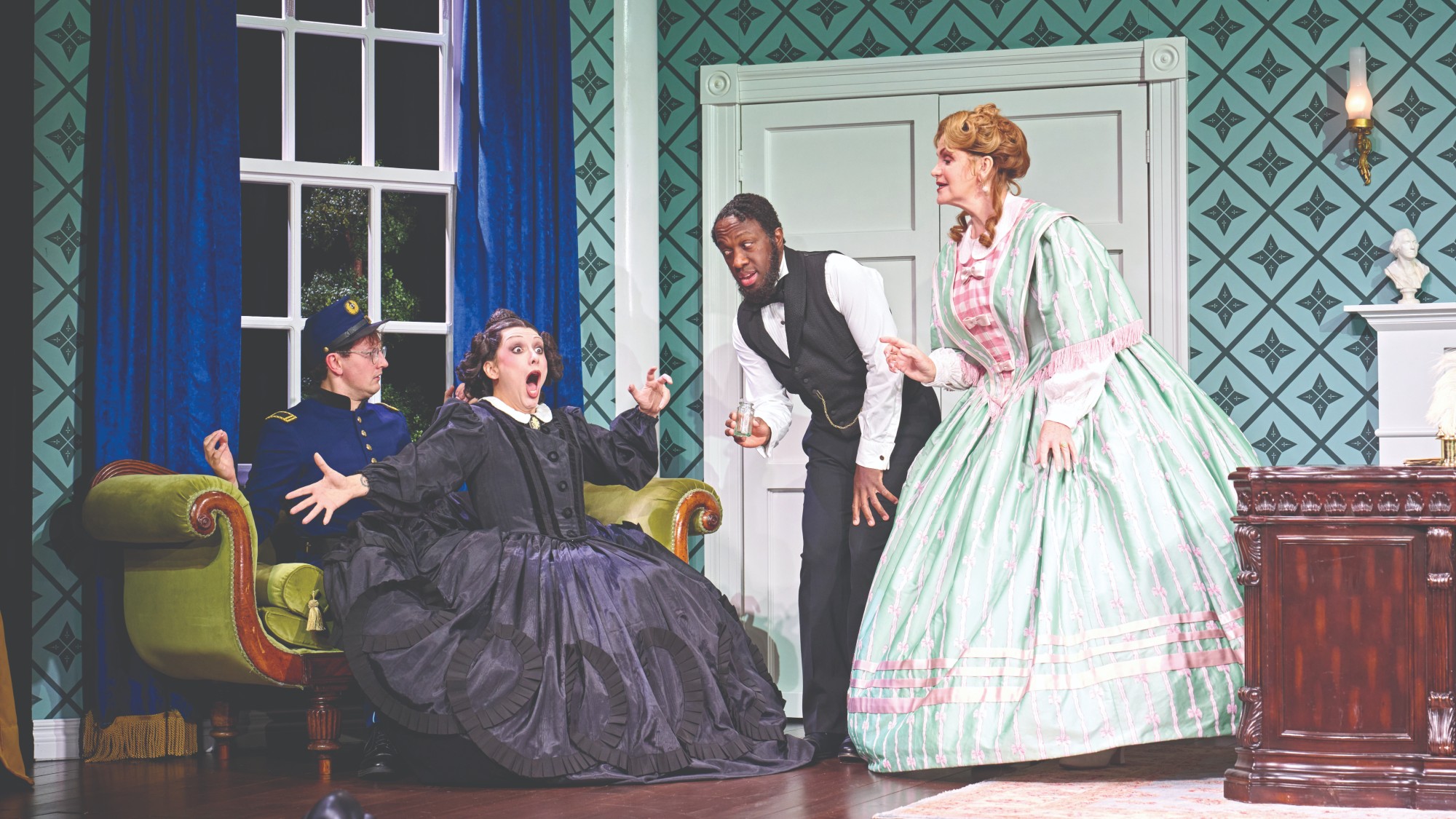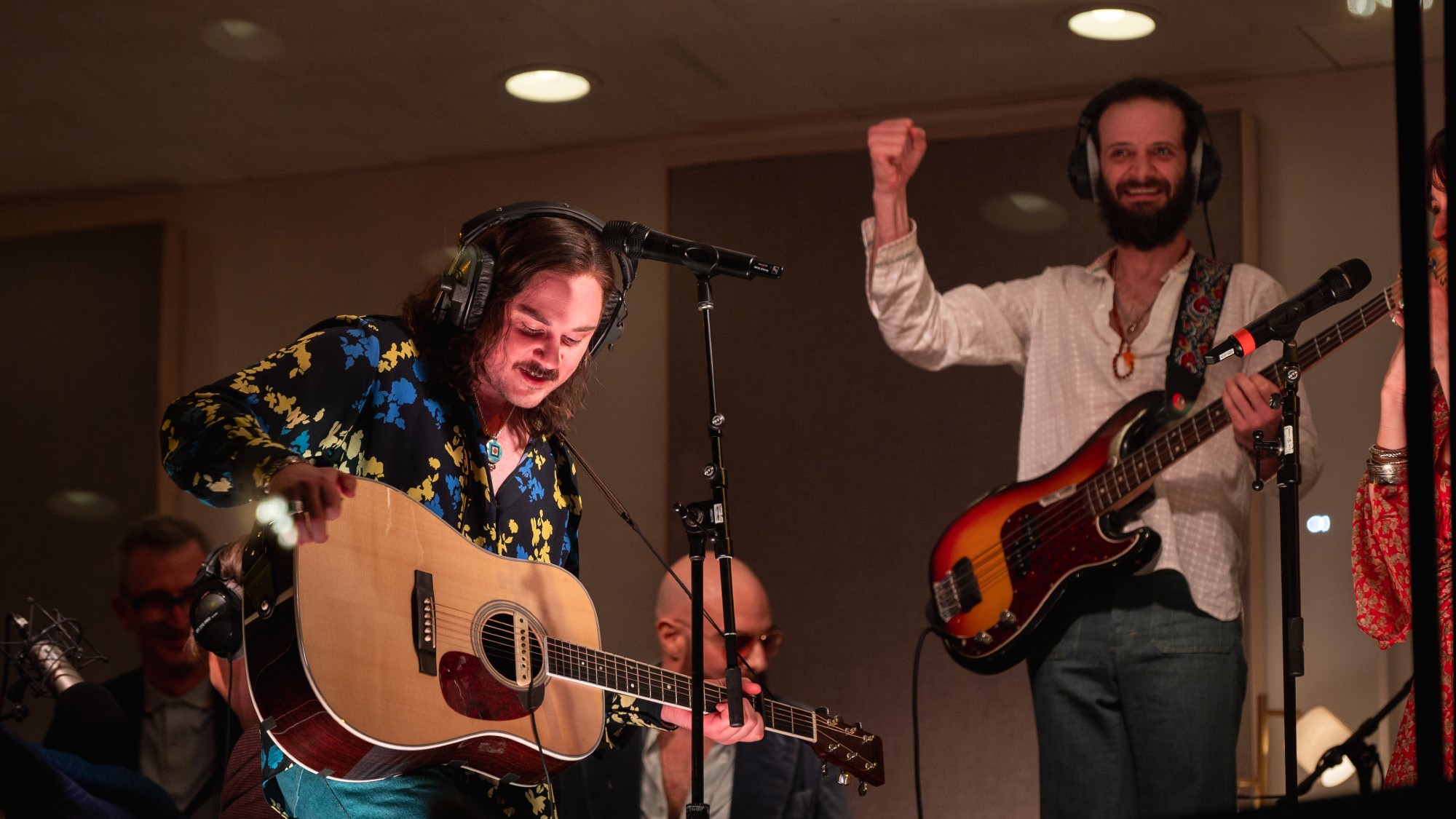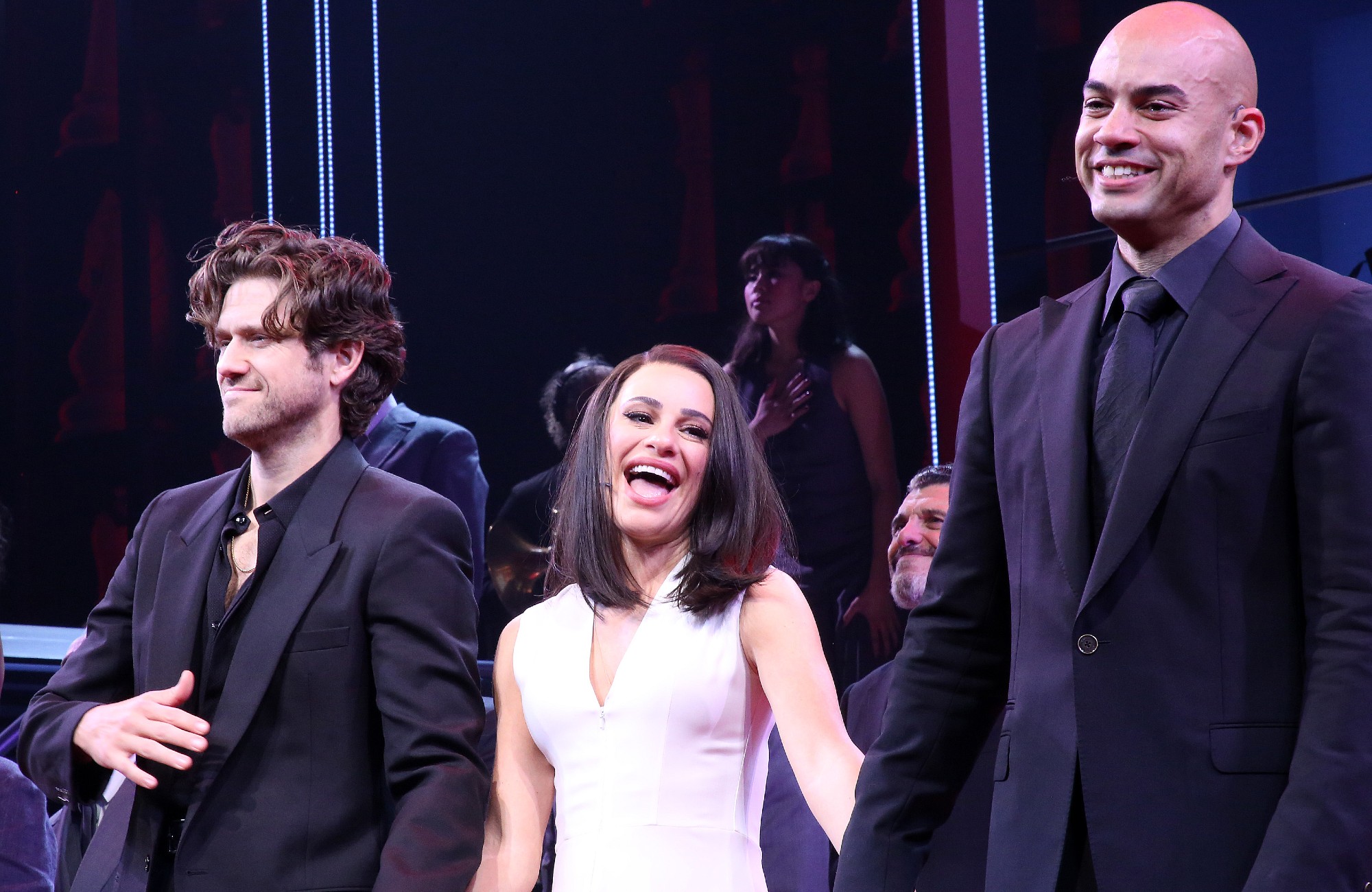Why theatres are abandoning intervals
Younger audiences prefer pause-free performances but a break ensures extra revenue, and theatregoers' comfort

A free daily email with the biggest news stories of the day – and the best features from TheWeek.com
You are now subscribed
Your newsletter sign-up was successful
For some it's a "waste of time that breaks the spell and drags out the evening", but for others the traditional theatre interval is an "essential break for socialising and getting a drink". Pausing a show midway is "quite literally, divisive", said Susannah Butter in The Times, and it is also becoming less common, as an increasing number of West End shows "abandon" the interval altogether.
This summer, a number of big-name London plays, including "The Years" at the Almeida, "Slave Play" at the Noël Coward and "The Constituent" at the Old Vic ran without a break.
'True joy'
A growing number of directors believe that younger audiences "appreciate a more immersive show without a pause (like a gig)", wrote Butter. For post-pandemic punters, a play seems to be part of a night out, rather than being a night out in itself, and cutting the interval leaves "time to go for dinner afterwards".
The Week
Escape your echo chamber. Get the facts behind the news, plus analysis from multiple perspectives.

Sign up for The Week's Free Newsletters
From our morning news briefing to a weekly Good News Newsletter, get the best of The Week delivered directly to your inbox.
From our morning news briefing to a weekly Good News Newsletter, get the best of The Week delivered directly to your inbox.
A play without an interval is a "true joy", wrote Hannah Jane Parkinson in The Guardian in 2018, because "I much prefer to stay in the dark, belief still suspended", than "hang around in a sticky-floored lobby clutching a flat Coke" in a "plastic cup".
A lot of actors are in favour, too. "Creatively I love having no interval," Cush Jumbo, who will reprise the role of Lady Macbeth at the Harold Pinter in October, told Butter. "It's hard to get back into the zone after a break". Getting home an hour earlier is also "a godsend", especially if you "have children or are doing another job".
The interval is a "vital part of your night out at a show", wrote Louise Wise in the London Evening Standard in 2018. It's "the punctuation that stops it from feeling like a sentence" and "more vital than ever, as our big shows get ever longer and more state-of-the-nation".
There's a very practical financial imperative to the interval, too, Nica Burns, the co-owner of Nimax Theatres, told Butter. For regional theatres, as much as 40% of their income can come from drinks and concession sold during the interval, and some contracts have an "interval clause", meaning venues charge production companies a financial penalty if there's no break. "Not having an interval is a decision to be made very carefully," Burns said.
A free daily email with the biggest news stories of the day – and the best features from TheWeek.com
'Red wine and steaks'
To pause, or not to pause – that was not a question during Shakespeare's days. Back then, there were no intervals. "It wasn't just that people had better attention spans", wrote Butter, "they were allowed to talk and roam freely during the play, so breaks weren't as much of a concern".
Intervals began in the 1880s when Sir Augustus Harris, the manager of the Theatre Royal Drury Lane, thought breaks would be a good way of stopping people wandering in and out during the show. One Victorian performance of "Pygmalion" had four intervals, with wine and steak served on the roof of the Theatre Royal Haymarket to audience and cast alike.
A lack of interval might be immersive in one respect, but it's less so when spectators have no allotted moment to answer the call of nature. "Anecdotally," wrote Nadia Khomami and Zainab Haji in The Observer, London theatregoers have complained about attending shows where "their viewing experience has been disrupted by other people's constant trips to the bathroom".
Jez Bond, the founder and artistic director of the Park Theatre in north London, said around 90 minutes is the best limit for a no-interval show. During an interval-free 100-minute production, he told Butter, there was an "older audience" and "people just got up and went to the loo in the last 20 minutes".
In the US, wrote Wise, an even tighter limit is common. Under a guideline known as the "Broadway bladder", there must be an intermission after 75 minutes, for "obvious reasons of relief".
Chas Newkey-Burden has been part of The Week Digital team for more than a decade and a journalist for 25 years, starting out on the irreverent football weekly 90 Minutes, before moving to lifestyle magazines Loaded and Attitude. He was a columnist for The Big Issue and landed a world exclusive with David Beckham that became the weekly magazine’s bestselling issue. He now writes regularly for The Guardian, The Telegraph, The Independent, Metro, FourFourTwo and the i new site. He is also the author of a number of non-fiction books.
-
 How to Get to Heaven from Belfast: a ‘highly entertaining ride’
How to Get to Heaven from Belfast: a ‘highly entertaining ride’The Week Recommends Mystery-comedy from the creator of Derry Girls should be ‘your new binge-watch’
-
 The 8 best TV shows of the 1960s
The 8 best TV shows of the 1960sThe standout shows of this decade take viewers from outer space to the Wild West
-
 Microdramas are booming
Microdramas are boomingUnder the radar Scroll to watch a whole movie
-
 American Psycho: a ‘hypnotic’ adaptation of the Bret Easton Ellis classic
American Psycho: a ‘hypnotic’ adaptation of the Bret Easton Ellis classicThe Week Recommends Rupert Goold’s musical has ‘demonic razzle dazzle’ in spades
-
 Is a social media ban for teens the answer?
Is a social media ban for teens the answer?Talking Point Australia is leading the charge in banning social media for people under 16 — but there is lingering doubt as to the efficacy of such laws
-
 Woman in Mind: a ‘triumphant’ revival of Alan Ayckbourn’s dark comedy
Woman in Mind: a ‘triumphant’ revival of Alan Ayckbourn’s dark comedyThe Week Recommends Sheridan Smith and Romesh Ranganathan dazzle in ‘bitterly funny farce’
-
 Oh, Mary! – an ‘irreverent, counter-historical’ delight
Oh, Mary! – an ‘irreverent, counter-historical’ delightThe Week Recommends Mason Alexander Park ‘gives the funniest performance in town’ as former First Lady Mary Todd Lincoln
-
 The strangely resilient phenomenon of stowaways on planes
The strangely resilient phenomenon of stowaways on planesThe Explainer Lapses in security are still allowing passengers to board flights without tickets or passports
-
 8 touring theater productions to see this winter, all across the United States
8 touring theater productions to see this winter, all across the United Statesthe week recommends New shows and reconsidered productions are on the move
-
 Paddington: The Musical – a ‘funny, feel-good, family-friendly’ show
Paddington: The Musical – a ‘funny, feel-good, family-friendly’ showThe Week Recommends The cast take a ‘well-known story’ and ‘melt your heart’ with this triumphant production
-
 ‘Chess’
‘Chess’feature Imperial Theatre, New York City